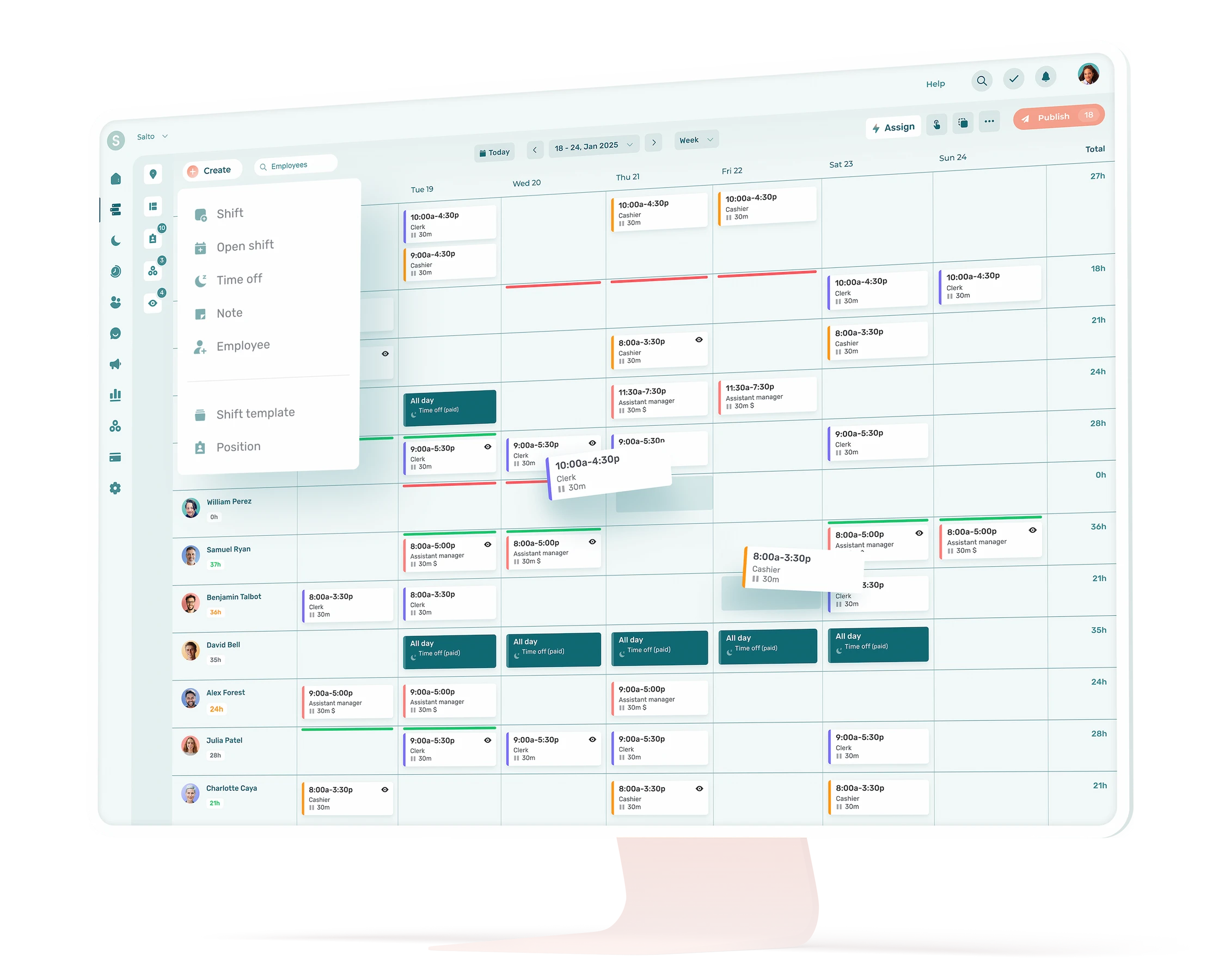Some people—however rare—have a knack for time management.
I knew a med student who, like all doctors-to-be, worked very hard. Her life revolved around her studies. However, contrary to expectations, she found time to attend her dance classes and to go out with friends once a week. When she had vacations, she even travelled. She was never late and never seemed overwhelmed. I’ve always taken her as an example of fabulous time management. Her work-life balance was truly inspiring.
It can’t be denied that people who master the art of time management enjoy many benefits, among them lower stress, healthier lifestyles and greater productivity.
If you are one of those people, you have my admiration. If, on the contrary, you struggle with time management, this article might be useful to you.
1. Make Lists
I admit I’m pretty big on lists. I feel they keep me from forgetting things and help me manage my time. Be it at work or at home, I use lists daily.
Making lists lets you see the big picture of what you have to get done. As soon as I think of something, I jot it down; this lets me continue focusing on what I was doing before the new thought can disrupt my productivity.
Keep your lists close at hand; personally, I’m partial to paper. But there are ways to keep them on your phone, so you always have them with you. For instance, the Google Keep app allows you to create and share checklists. The Reminders app on the App Store can also help you get organized.
💡 This strategy helps organize ideas and tasks with maximum efficiency.
2. Set Daily Goals and Priorities
Every morning, take a few moments to look at your daily planning, identify urgent tasks and set priorities.
There are many ways to do it. To name only one, the Eisenhower matrix (created by the so-named American president) has you classify tasks by evaluating their importance and urgency.
- If a task is both urgent and important, make it a priority.
- If a task is important, but not urgent, set a later time for it.
- If a task is urgent, but not important, consider delegating it to a team member.
- If a task is neither urgent nor important, it’s probably a waste of your time.
To evaluate the importance of a task, start by assessing its repercussions, and see if it is essential or creates value. Urgency for its part is a matter of the how soon it needs to be done. The closer the due date, the more urgent it will be.
Of course, these criteria are somewhat subjective, but you can view them as a starting point for your reflection on your workload.
💡 This method helps you structure and prioritize what you have to get done in a set timeframe.
3. Say No More Often
Being able to say no is necessary for anyone looking to manage their time well. Being overburdened is not a gauge of success. Instead, focus on your important tasks and projects to maximize your performance.
Focusing is about saying no.
Use the above matrix to figure out which tasks you should delegate. If you’re constantly overworked, it might be time to hire help or reassess your work methods.
💡 This strategy lets you unclutter your to-do list.
4. Avoid Multitasking
I can’t multitask to save my life. Well, that’s not quite right, but I’m never satisfied with what I accomplish while multitasking. To avoid spreading yourself too thin, do one thing at a time.
Oprah Winfrey concurs: “That whole thing about multitasking? That’s a joke for me. When I try to do that, I don’t do anything well.”
According to a Stanford University study, people who often multitask are less productive, both in terms of quality and quantity. To put it plainly, our brains are designed to do only one thing at a time. Experts even say that multitasking momentarily decreases our IQ … to that of an 8-year-old.
💡 This strategy helps increase your efficiency and productivity.
5. Don’t Underestimate the Time Required to Get Something Done
We’ve all made the mistake of underestimating how much time it would take us to do something. And we all know the consequences: being late to meetings, no longer having time for everything else, stressing out, etc.
Learn to better evaluate the requisite time for each of your tasks. Build in “transitions” between each, as well as time losses. Plainly said: don’t overschedule. To help you with this, you can for instance set buffers between meetings.
But also make time for unforeseen events: a colleague asks you for help, you receive an email requiring immediate attention, an unplanned meeting is added to your day, and so on. Furthermore, you should leave time for your obligations, as well as for activities you care about.
💡 This approach gives you better control of your time and lets you reach the goals you set for yourself.
6. Work at Peak Productivity
Contrary to what we see everywhere on the Internet, I don’t think the early bird gets the worm. Some people just aren’t cut out for this type of schedule. Listen to your body, and if you can, work when you’re at your most productive.
To figure this out, try working at different times during the day and see when you’re the most efficient. I did so myself during a writing retreat: as it turns out, I’m at my most productive between 7:30 and 10:30 a.m., and at my worst between 5 and 7:30 p.m.
💡 This strategy brings your work schedule in sync with your natural productivity cycle, and limits time losses.
7. Avoid Distractions
Ultimately, the best time to work is when we’re the least distracted. To better focus, shut down all notifications (email, Facebook, text messages and so on). Furthermore, schedule undisturbed working sessions and inform your colleagues if necessary.
For example, we here at Agendrix communicate with Slack. People can easily indicate in their status that they need to focus and want to remain undisturbed. Notifications can also be turned off. It’s quite handy.
Speaking of which, it’s normal to not always answer when someone writes or calls us. I would recommend restricting communications management (emails, internal messaging, text messaging, etc.) to set times of the day. For example, you could take 30 minutes in the morning and 15 minutes after lunch. Adjust the frequency and duration according to your needs.
💡 This strategy limits distraction and procrastination.
8. Take Breaks
Of all the tips featured in this article, this is without a doubt the most important. Take regular breaks. To really be efficient, you have to rest on a regular basis.
Some people strongly advocate the Pomodoro method, which was created in the 80s. It consists in setting a work period (typically between 25 and 50 minutes at a time) followed by a short 5-minute break. After 4 consecutive work periods, it’s time for a longer break (15 to 20 minutes).
Furthermore, I strongly recommend taking active breaks. Take a walk with a coworker or do some stretching. You’ll see for yourself that this will lower your stress.
💡 This approach allows you to be more relaxed and to take care of your physical and mental health.
9. Use the right tools
We waste so much of our time by using obsolete tools. Even worse when we do tasks manually even though they could be made way faster with the right tool. Just imagine if cashier still had to enter each item manually in the cash register. Lineups would be endless!
You have to manage several projects at the same time? Use a project management software.
You have to manage your employee schedule each week? Work with an employee scheduling software.
Even when the best tools cost more money, you will save so much time it will be worth it.
💡 This method will make you more productive.
Be the Master of Your Time
Without a doubt, learning to better manage your time will serve you in all aspects of your life. You’re sure to enjoy a better work-life balance and improved well-being at work.
If despite taking action on these tips, you don’t see a change, it may be time to reduce your workload, otherwise you risk burning out (professionally and/or personally).
After all, we can’t master time—but we can master our own time.










